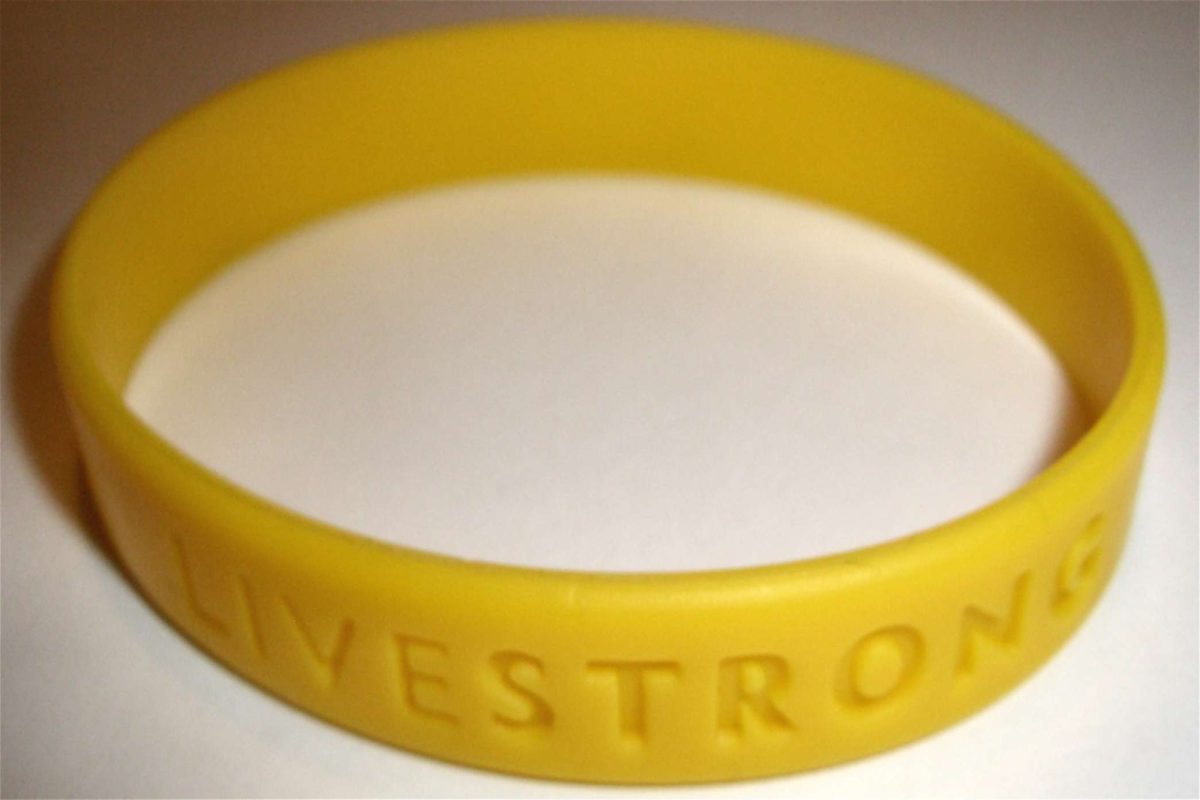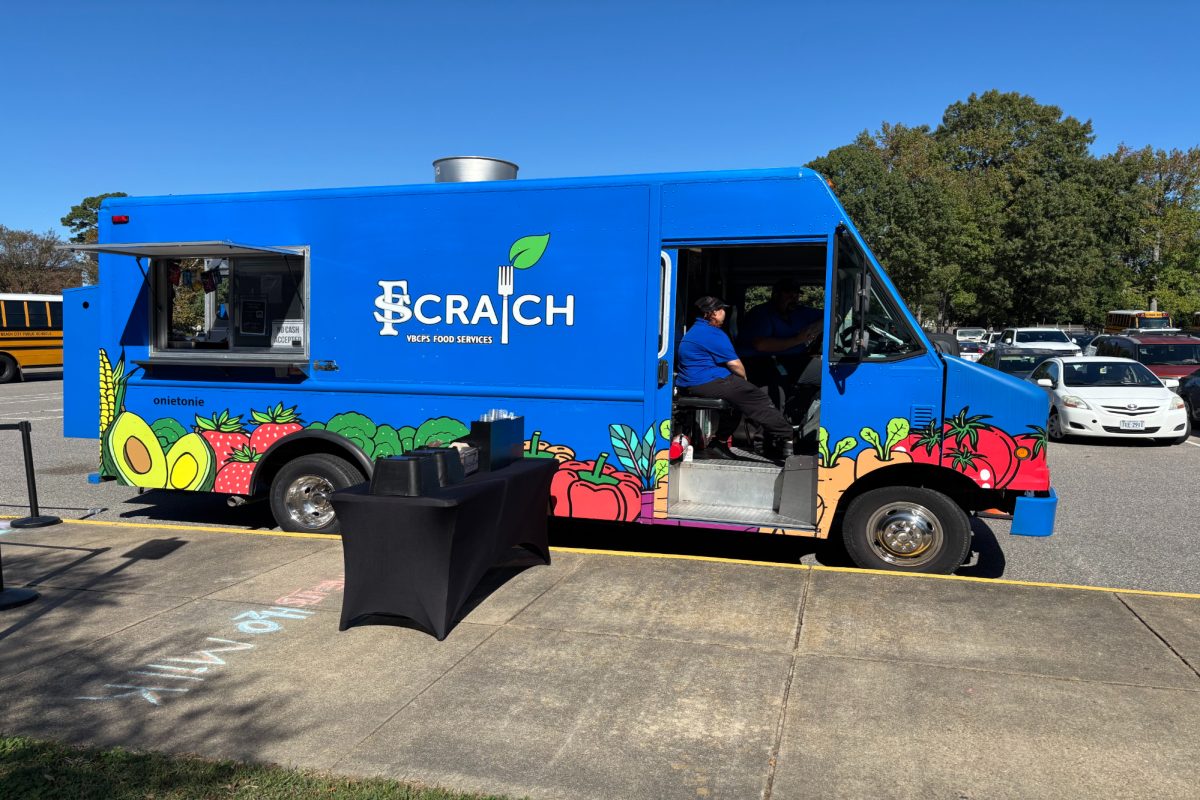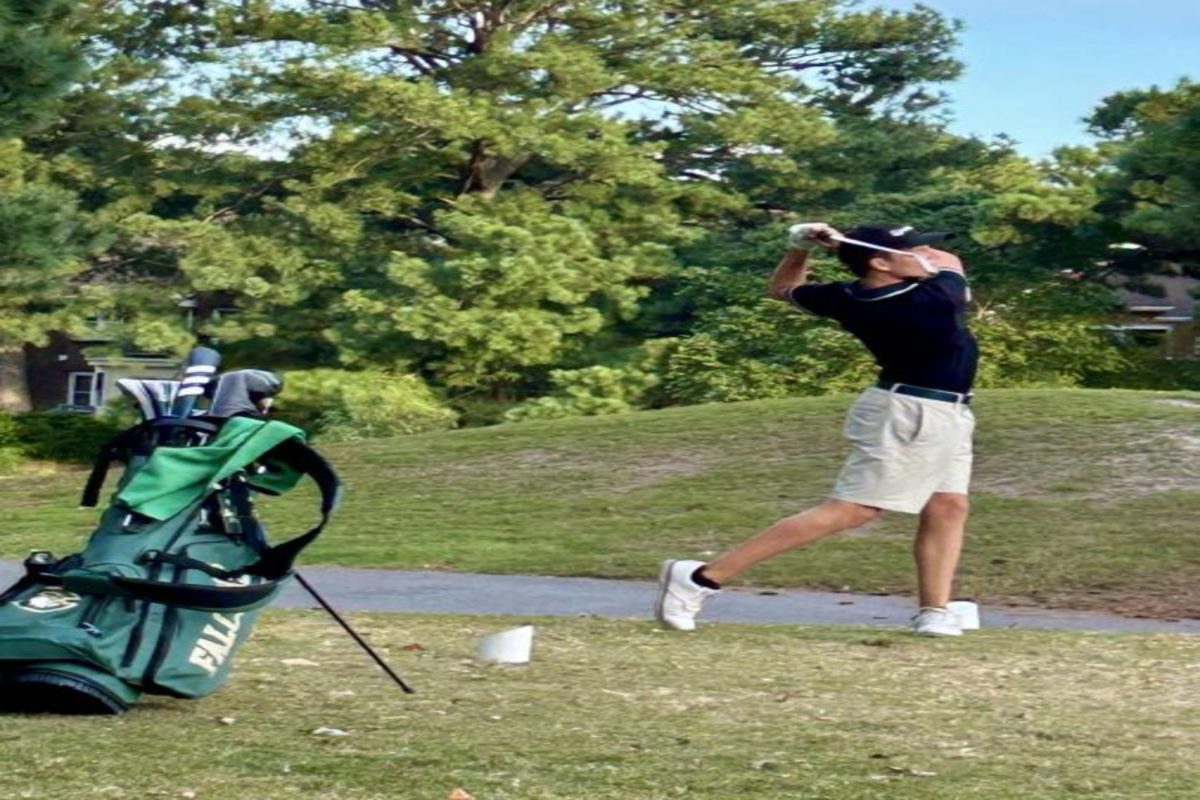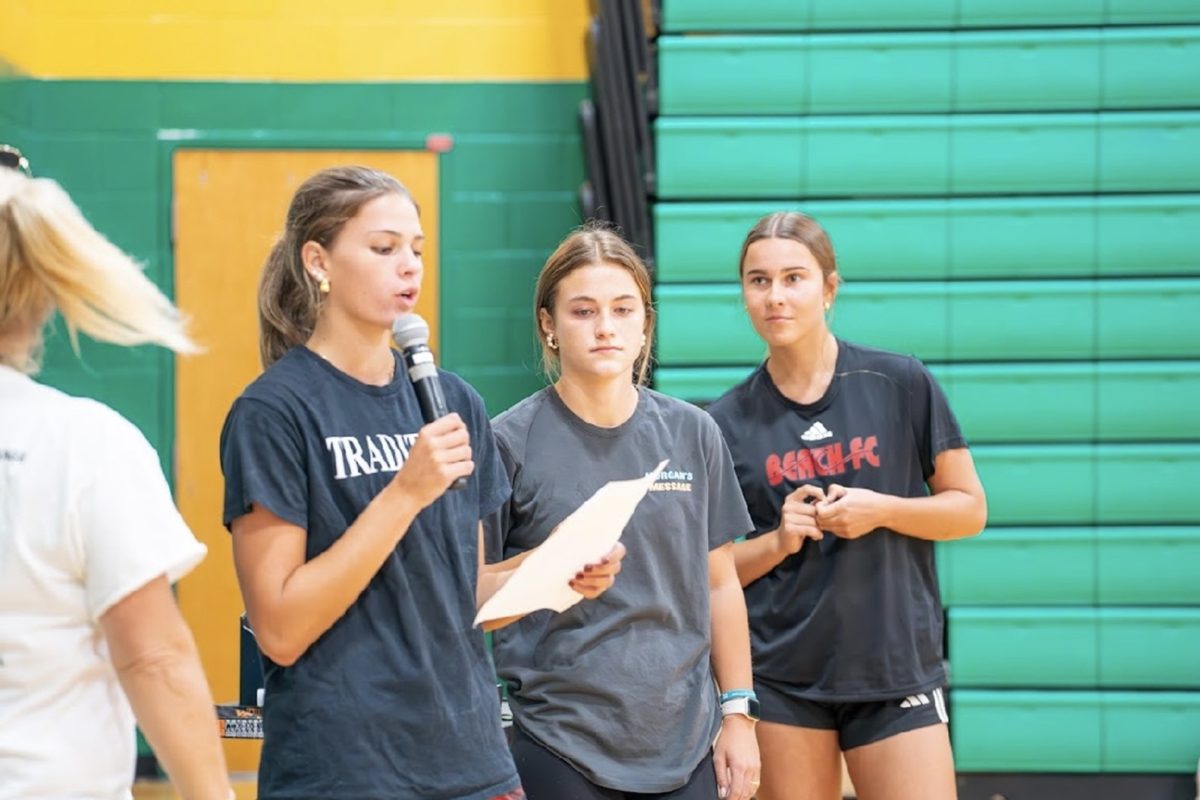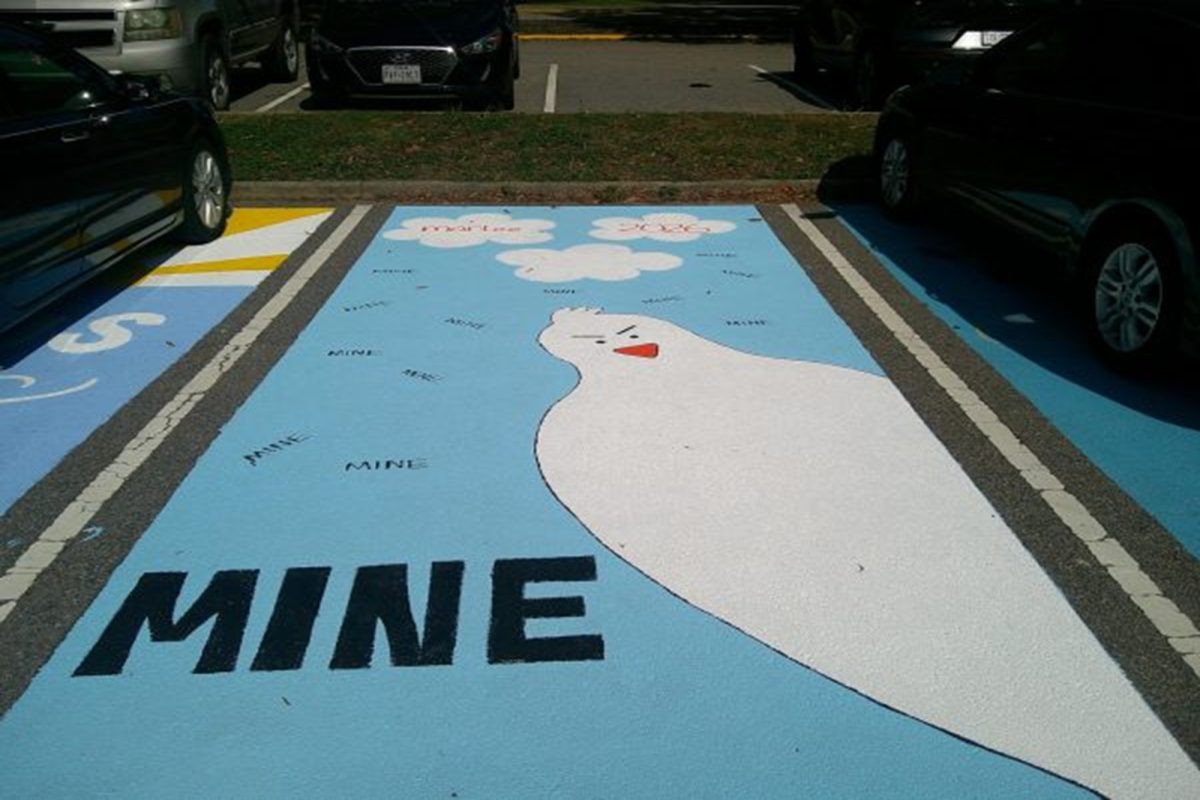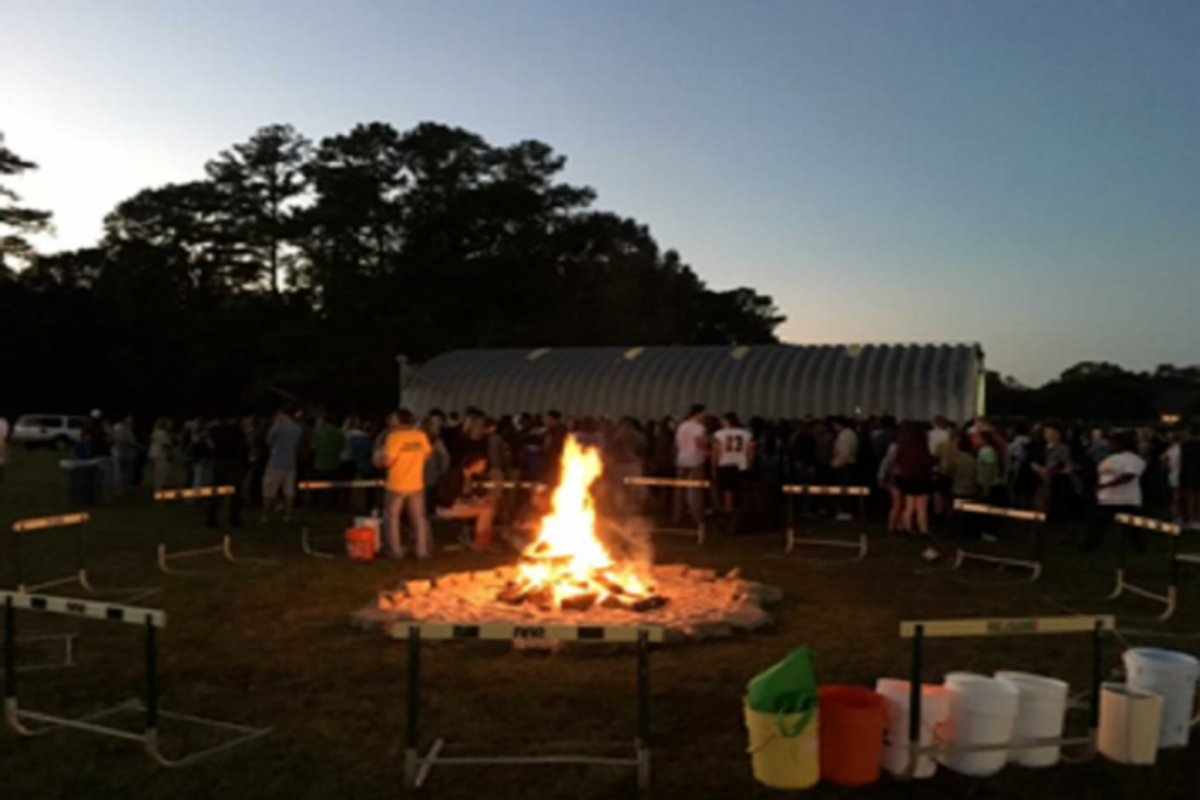The lifelong, local waterman Chris Ludford spoke to Culinary Arts students regarding multiple topics involving marine life last week as part of their “seafood” unit.
A few of Ludford’s talking points included growing up locally, close to the Chesapeake Bay where he began to catch and sell minnows at only ten years-old to owning his own local oyster business called Pleasure House Oysters.
Not only has working on the water let him learn more about himself and the world around but it has enabled him to learn about financial responsibility. Ludford speaks about the importance of staying out of debt by talking about how it can keep you from expanding your finances and doing the things you love.
According to junior Cole Ludford, who just happens to be his son, one might say that his dad has “seen it all” and has been telling his kids since they were toddlers about not only Bay life, but some of the life lessons that he has learned along the way such as stay out of debt, and save; start saving early.
When it comes to the seafood industry Ludford knows the ins and outs of the path “from the sea to the dinner table.” Harvesting seafood is seemingly not as simple as catching fish and harvesting oysters, the important process to put food on the table is broken down to it’s finest intricate parts. Waterman who wish to harvest and sell seafood must acquire a number of tags, permits, and licenses in order to make a living.
In addition, waterman must also revolve their schedule around their state or local government who make big decisions impacting what you can and can’t do on the water on a day to day basis. State and local governments must take all into account that could impact marine life. Some examples are water quality, current and future weather, salt levels, and other industries working on and around the water.
“As it relates to our environment, everyone has the right to clean air and water,” Ludford said.

